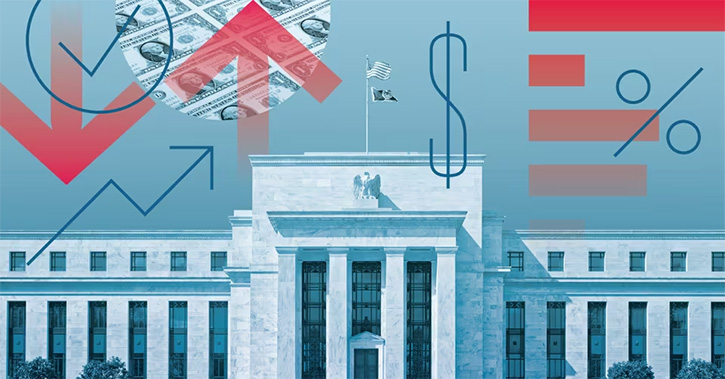Jeremy Glaser: For Morningstar, I'm Jeremy Glaser. Global stock markets seem to be hanging on every development in the Greek debt crisis. I'm here with Bob Johnson--he is our director of economic analysis--to see if this focus is well founded.
Bob, thanks for joining me.
Bob Johnson: Thanks for having me today.
Glaser: So, let's talk a little bit about the difference between this current incarnation of the debt crisis versus what we saw in 2010. The markets are certainly rallying and selling off on the news, but not quite to the extremes that we saw in 2010. What's different? What's changed in the last five years?
Johnson: The biggest difference between 2010 and now, in terms of the Greek debt situation, is that the debt is now primarily held by a combination of institutions--the ECB, the IMF and so forth--and not held by individual banks or individual corporations. That's a huge difference because for the big institutions the debt is kind of like a rounding error to them.
On the other hand, the debt, while it was in a bank, if the bank was already in a precarious position, it might be big enough to make a difference and push the bank over the edge. Recall that the banks were in pretty tough shape in 2010. They are now in substantially better shape in 2015. So, you don't have near that level of worry of a banking contagion where Greece defaults on their debt and that means a failure of a European bank and the European bank might do business with a U.S. bank and bring that down, which may bring down a Chinese bank. And so, you've kind of had that contagion worry. Now, all of the other banks are stronger--arguably, some more than others--and you've got the [Greek debt] primarily held at the big institutions and not at the individual-bank level. It's a huge difference.
Glaser: So, kicking the can down the road actually did create more of a ringed fence around these Greek issues?
Johnson: Absolutely. It can't really spread to as many things. Now, it becomes more of a matter of principle and willingness to act and less of a concern that it's going to ruin everything.
Glaser: So, what has been happening in the last five years, then? There have been a number of bailouts, a lot of money being distributed, some changes to the Greek debt structure. Why hasn't this actually solved the fundamental problem?
Johnson: It solved some of it. Things are better, and there have been adjustments that have been made. That's kind of the good news. The bad news is that the debt is still incredibly high. That's the real problem. The question is, can they ever pay debt that amounts to 180% of their GDP? And it's at a time in which their GDP hasn't grown. So, then it becomes really onerous for them to pay the debt. And so, something probably needs to be done about that at some point. You can always extend it and you can keep reducing rates, but again, there may be some need to reduce that debt again. The real issue is that they've done all of this stuff and they have made their budget deficits and they've really gotten them down at pretty minimal levels. The deficit now in Greece, on an annual basis, is under the 1% level--even better than it is in the U.S. at the moment. But it's coming at a great price. The GDP growth is substantially below where it was in 2008. So, they've gone through a lot of pain. And if they had nice growth, it would be really easy to support that debt, but they are not growing. They are going the other way.
Glaser: So, this is more about principles than economics in a lot of ways. What are the big pressure points in these negotiations? What should investors maybe be watching out for to see if a deal is actually possible?
Johnson: Well, the problem is that there is this perception--right or wrong--that the Greeks got themselves into this debt crisis and now they're trying to wiggle their way out of it and they are somehow lazy and it's their problem. Now, all they have to do is be good citizens and own up and pay their debt and everything will be fine. Then, on the other hand, you've got Greece saying, "We have ruined our economy; we are making our people miserable. We can't keep doing this forever. Give us a break." They had elections in December, and they elected a government that had a platform of "We're not taking this anymore." And they're doing what they said they were going to do.
So, you've got this political thing going on where the German citizens don't want to give a free lunch to the Greeks and the Greeks think that the Germans are being too tough. It's this great puppet show that is going on between the two of them. And again, the amount of money we are arguing about is trivial, but the things they are asking them to do are nasty--cut pensions that are already being paid and so forth. So, I think they have to really think through what they want to do here, and I think they need a fig leaf to say, "OK, we'll let them make fewer cuts than there were before, and they have to sound more conciliatory. Then, maybe we can work out a deal."
Glaser: If you are a U.S.-based investor, you wake up sometime in early July and a deal hasn't been made. All of a sudden, there are capital controls in Greece for leaving the eurozone. How worried should you be? What kind of impact is this going to have on an average U.S. investor's portfolio?
Johnson: I think, directly, very little. The amount of stuff that gets exported to Greece is relatively minor. In fact, it's probably mainly German defense goods that are impacted more than a lot of other things. So, I'm not really worried about any world-trade situation. That certainly doesn't seem to be an issue. I'm not really worried about a bank contagion, but it will potentially raise rates for various countries in the European Union. Everybody thought that everything was safe, and now if you have somebody who defaults and nobody makes good on it, it's going to raise what the rate is out there. And we've already seen the rates in Spain go up. They used to be lower than the U.S.--not so much anymore. Some of that has already crept into the analysis. So, it's more likely to have an impact on Europe and people there and their interest rates and people who trade with Greece, which tends to happen a little bit more from Europe. That's why the European market has been more affected than, say, the U.S. market in recent days.
Glaser: So, generally speaking, you think that a lot of the focus on Greece and trying to figure out who is coming to what meeting when might be kind of overdone?
Johnson: I really do. I think that they're going make it a fight. And they have to fight to the end because of the political pressure on both of them. And they have to come to some type of compromise agreement. If they don't, then maybe Greece leaves the European Union. That doesn't ruin the union, and it doesn't mean that every other country in the European Union is going to think about leaving. So, I'm not worried either way, particularly.
Glaser: Bob, I certainly appreciate your take on the Greek situation today.
Johnson: Thank you.
Glaser: For Morningstar, I'm Jeremy Glaser. Thanks for watching.





















